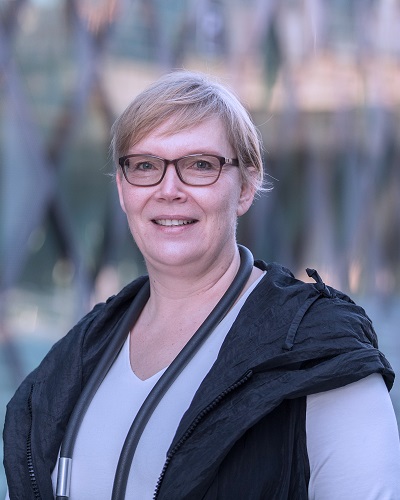
What are your thoughts on the importance of a sound circular bioeconomy strategy at government level in relation to climate change?
In spite of what is happening with Covid-19, climate change is the defining crisis of our time. Huge efforts are needed to combat global warming and to adapt to and mitigate the changes that we are already seeing. I am convinced that the bioeconomy plays a crucial role in this and that it offers pivotal solutions. National circular bioeconomy strategies have to be in line with the relevant supranational policies and strategies – such as the Paris Agreement and the 2030 Agenda of the United Nations. In the new German National Bioeconomy Strategy sustainability and climate protection are defined as the two main issues of this century. Only through specification in national strategies can the overarching goals then be transferred to action plans that take the individual situations in different countries into account. Ultimately, we need sound bioeconomy strategies but also corresponding action in other policy fields.
Do you see the circular bioeconomy as having an important role in the post Covid-19 world?
The last months have been dominated by the Coronavirus crisis. This global crisis illustrates the vulnerabilities of our current economic system, for example, outsourcing of important production steps, the vulnerabilities associated with global dependencies on feedstock, food and goods. More resilient, sustainable and regional food systems and value chains are a way to address these issues. Again, a circular bioeconomy can contribute solutions here: on the one hand to supplying society and the economy with food, materials and goods, and on the other hand to creating jobs and safeguarding economic viability and long-term sustainability. Apart from food and resource security, other hallmarks of the bioeconomy – preservation of the environment and biodiversity, climate protection – are becoming ever more important. I think that regional and circular value chains in the bioeconomy are effective instruments with which to strengthen the stability of the economic system as a whole, and in a sustainable way.
The World Bioeconomy Forum has a diverse range of high-level speakers and panelists, what are you hoping to achieve by taking part in the event, and what are your hopes for the future of the circular bioeconomy?
Meeting experts and professionals from different fields and countries is always inspiring. We have made enormous progress in generating new and novel products and processes in the different areas of the bioeconomy. The German National Bioeconomy Strategy emphasises the need to take the next step: to bring together all of these policies, sectors and disciplines in order to develop holistic approaches. This means taking into account all of the relevant factors and then finding the best possible way forward. Conferences like the World Bioeconomy Forum, and not to forget the Global Bioeconomy Summit in November, are wonderful opportunities to launch such activities. I am convinced these events will provide ways for us to exchange many good ideas and best practices. My personal belief, and my hope is that by sharing new ideas and best practices, we will help to further develop and implement a circular bioeconomy worldwide.
The Regulators and Climate Change session at the event also includes keynote addresses from prominent bioeconomy stakeholders, including Mariya Gabriel (Commissioner for Innovation, Research, Culture, Education and Youth from the European Commission),Jari Leppä (Minister of Agriculture and Forestry, Finnish Government), Petteri Taalas (Secretary General, World Meteorological Organisation), and Mette Wilkie (Director of Forestry Policy, Resources Division, FAO). The Panel will be moderated by Dr. Christian Patermann, ”Father” of European bioeconomy, Former Director EU Commission and Advisor to the German Government on bioeconomy matters.
Five Minutes With… is a series of interviews being run by the WCBEF to highlight some of the high-level speakers and panellists taking part in the event this year. To view the whole full day programme and register for the event please visit https://wcbef.com.80-69-172-163.hostaan.fi/